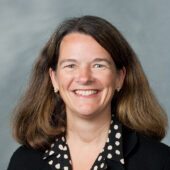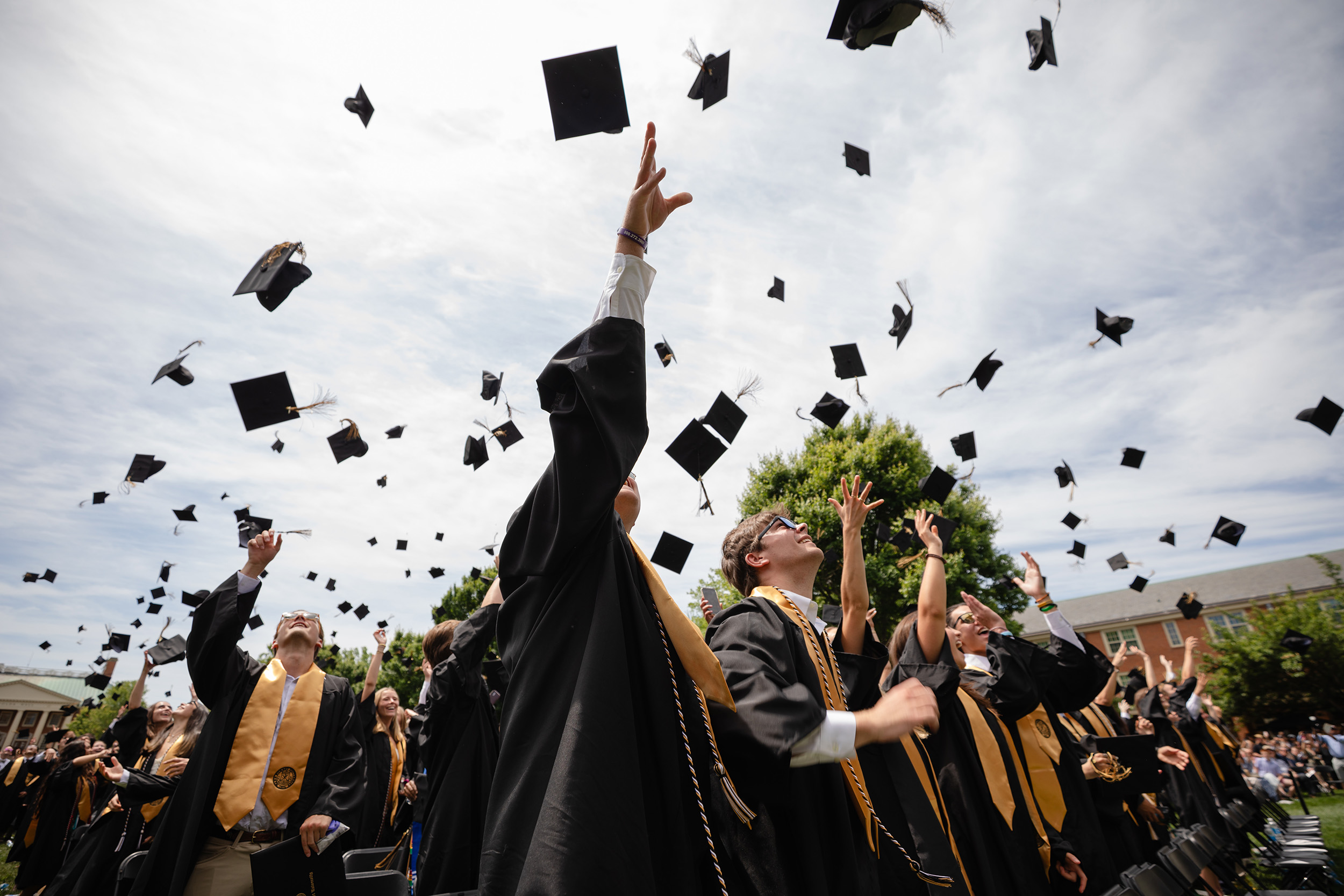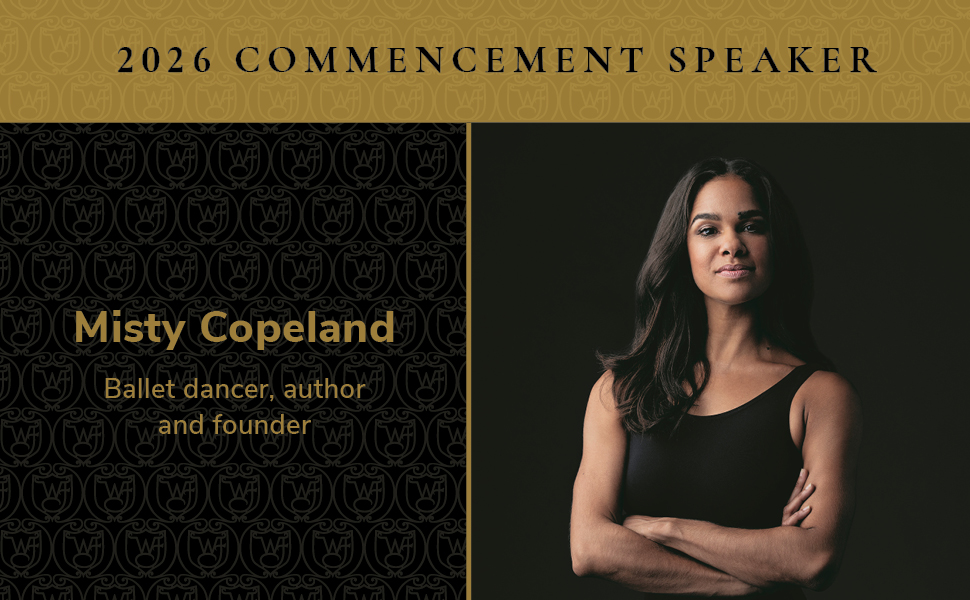Smithsonian to display WFU research addressing global challenges
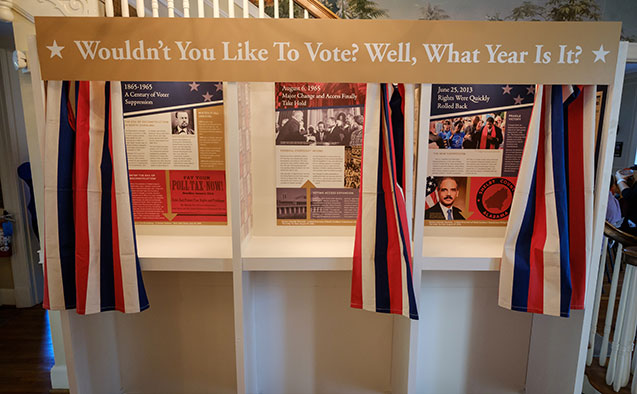
Wake Forest University has participated in a yearlong process with the Atlantic Coast Conference, partner ACC universities, and the Smithsonian Institution to create the first “ACCelerate: ACC Smithsonian Creativity and Innovation Festival.” Presented by Virginia Tech and the Smithsonian’s National Museum of American History, the ACCelerate Festival is three-day celebration of creative exploration and research at the nexus of science, engineering, arts, and design. Visitors to the festival will interact with leading innovators from ACC universities and engage with new interdisciplinary technologies that draw upon art, science, and humanities to address global challenges.
Held at the National Museum of American History in Washington D.C. on October 13-15, from 10 a.m. – 5:30 p.m. each day, the event is programmed by Virginia Tech’s Institute for Creativity, Arts, and Technology and the museum’s Lemelson Center for the Study of Invention and Innovation.
The event is free and showcases the 15 universities of the ACC in an opportunity for the schools to display their work to each other, and more importantly, to the public. In addition to the 47 featured interactive installations, the festival will include panel discussions and performances throughout the three days.
The festival will be featured on all three public floors in the west wing of the National Museum of American History, located on Constitution Avenue between 12th and 14th Streets, NW, along the National Mall in Washington, D.C. For the full schedule, performance descriptions and exhibitions, visit www.acceleratefestival.com. There will be interactive installations from across the 15 ACC schools around six thematic areas:
- Civic Engagement
- Arts and Technology
- Sustainability and Environment
- Biomimetics
- Health and Body
- Making and Advanced Manufacturing
Wake Forest University exhibitions and presentations include:
- IMPROVment: Improvisational Movement for Brain and Body Health: This project is a partnership between Wake Forest associate professor of dance Christina Soriano, who developed a movement intervention for
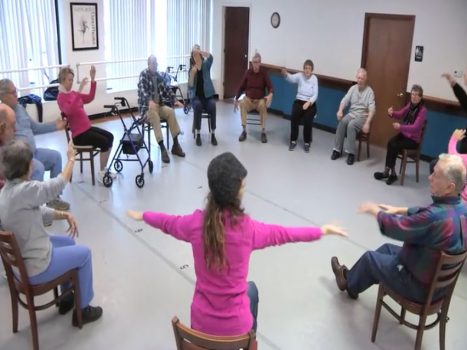 older adults, and Wake Forest School of Medicine neuroscientist Dr. Christina Hugenschmidt. It combines art and science to address symptoms of dementia, a relatively common and devastating disease of aging. Together Soriano and Hugenschmidt will present an interactive demonstration that includes opportunities to participate in the movement intervention, view video documentation, and see pilot data showing that dance can improve quality of life, decrease secondary symptoms of dementia, and improve brain network connectivity in older adults with dementia.
older adults, and Wake Forest School of Medicine neuroscientist Dr. Christina Hugenschmidt. It combines art and science to address symptoms of dementia, a relatively common and devastating disease of aging. Together Soriano and Hugenschmidt will present an interactive demonstration that includes opportunities to participate in the movement intervention, view video documentation, and see pilot data showing that dance can improve quality of life, decrease secondary symptoms of dementia, and improve brain network connectivity in older adults with dementia. - Wake the Vote: In an intensive civic learning and democratic engagement experience, a group of Wake Forest students formed a diverse cohort, examined issues central to the presidential election, built competencies for engaged citizenship, and experienced American democracy from the front lines through travel, participatory action, employment, coursework, program planning, and personal reflection. Wake the Vote students traveled to the Iowa caucuses and the New Hampshire, South Carolina, and North Carolina primaries, the Republican National Convention and the Democratic National Convention. Inspired by their experiences and the political party conventions in the summer, the students launched an election-themed exhibition hub to host conversations and events, from presidential debate watch parties to panel discussions to local and national speakers. They curated a national exhibit, UP to US, which featured over 35 works by 12 artists and focused on issues, including immigration reform, violence in our communities, access to education, and voting rights.
- The Story of My Life: The multimedia exhibition follows the lives of six intellectually and developmentally disabled adults and tells their stories through photography, written and spoken word, and various visual art forms.
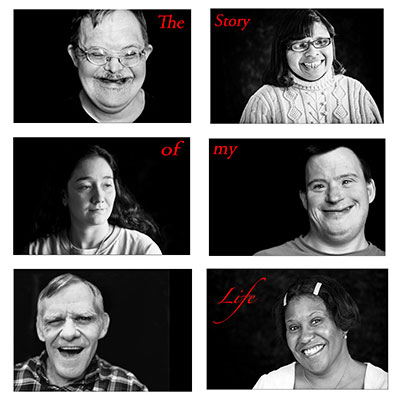 These richly layered narratives bear witness to the lives of the remarkable men and women, residents of Group Homes of Forsyth, who helped create them. The project is a collaboration among Wake Forest professor Phoebe Zerwick, photographer Christine Rucker, journalist Michelle Johnson, faculty at the Sawtooth School, and the six adults featured in the exhibit. The Wake Forest Humanities Institute provided support for the project as part of a larger effort to bring humanities projects to public audiences and to support university and community partnerships in the humanities.
These richly layered narratives bear witness to the lives of the remarkable men and women, residents of Group Homes of Forsyth, who helped create them. The project is a collaboration among Wake Forest professor Phoebe Zerwick, photographer Christine Rucker, journalist Michelle Johnson, faculty at the Sawtooth School, and the six adults featured in the exhibit. The Wake Forest Humanities Institute provided support for the project as part of a larger effort to bring humanities projects to public audiences and to support university and community partnerships in the humanities. - What is Language? Challenging our Intuitions and Assumptions: Data mining has traditionally remained outside humanistic inquiry, and therefore most research on student writing in U.S. English departments has relied on small-scale qualitative approaches and introspective judgments. In this multi-year project, student-researchers and faculty-mentors used concordancing software to tease out patterns of language use in nearly 20,000 student-written essays. These patterns, impossible to detect in traditional “close reading,” are the linguistic footprints of writers’ strategies and tacit beliefs about academic argumentation.
Categories: Arts & Culture, Experiential Learning, Research & Discovery
Wake Forest News
336.758.5237
media@wfu.edu
Meet the News Team
Headlines
Wake Forest in the News
Wake Forest regularly appears in media outlets around the world.

